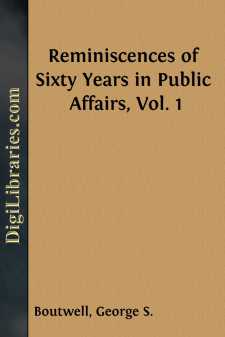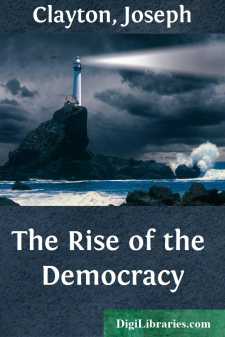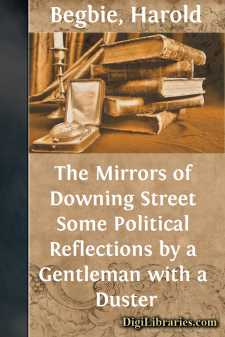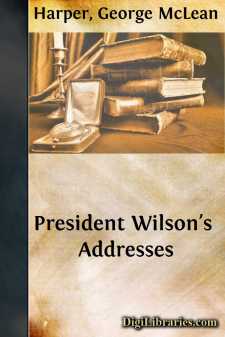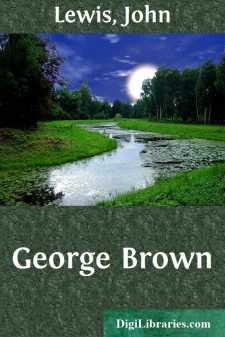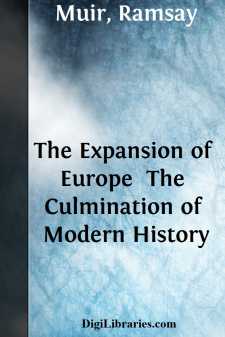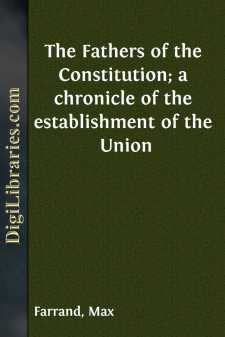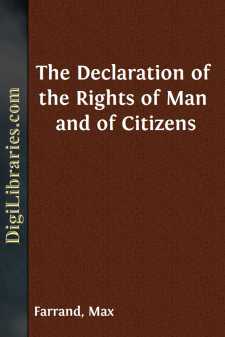Political Science
- Conspiracy & Scandal Investigations 1
- Constitutions 7
- Economic Conditions 10
- General 46
- Government 6
- History & Theory
- Peace 1
History & Theory Books
Sort by:
INTRODUCTION At the request of my daughter and my son and by the advice of my friends, the Honorable J. C. Bancroft Davis and the Honorable William A. Richardson, I am venturing upon the task of giving a sketch of my experiences in life during three fourths of a century. The wisdom of such an undertaking is not outside the realm of debate. A large part of my manhood has been spent in the politics of my...
more...
by:
Joseph Clayton
INTRODUCTION The British Influence Our business here is to give some plain account of the movement towards democracy in England, only touching incidentally on the progress of that movement in other parts of the world. Mainly through British influences the movement has become world wide; and the desire for national self-government, and the adoption of the political instruments of democracy—popular...
more...
MEMOIR OF HIS GRACE THE DUKE OF WELLINGTON. Arthur Wellesley, Duke of Wellington, is the fourth son of Garret,second Earl of Mornington, by Anne, the eldest daughter of Arthur Hill,Viscount Dungannon. He was borne at Dangan Castle, in the county ofMeath, Ireland, on the 1st of May, 1769. As in the case of many of the chief nobility and landholders in Ireland, the ancestors of the Duke were scions of an...
more...
by:
Harold Begbie
INTRODUCTION Let me say that I hope I have not betrayed any confidences in these sketches. Public men must expect criticism, and no criticism is so good for them, and therefore for the State, as criticism of character; but their position is difficult, and they may justly complain when those to whom they have spoken in the candour of private conversation make use of such confidences for a public...
more...
[Delivered at the Capitol, in Washington, March 4, 1913.] There has been a change of government. It began two years ago, when the House of Representatives became Democratic by a decisive majority. It has now been completed. The Senate about to assemble will also be Democratic. The offices of President and Vice-President have been put into the hands of Democrats. What does the change mean? That is the...
more...
by:
Woodrow Wilson
I There is one great basic fact which underlies all the questions that are discussed on the political platform at the present moment. That singular fact is that nothing is done in this country as it was done twenty years ago. We are in the presence of a new organization of society. Our life has broken away from the past. The life of America is not the life that it was twenty years ago; it is not the...
more...
by:
John Lewis
PREFACE The title of this series, "Makers of Canada," seemed to impose on the writer the obligation to devote special attention to the part played by George Brown in fashioning the institutions of this country. From this point of view the most fruitful years of his life were spent between the time when the Globe was established to advocate responsible government, and the time when the provinces...
more...
by:
Ramsay Muir
The purpose of this book is twofold. We realise to-day, as never before, that the fortunes of the world, and of every individual in it, are deeply affected by the problems of world-politics and by the imperial expansion and the imperial rivalries of the greater states of Western civilisation. But when men who have given no special attention to the history of these questions try to form a sound judgment...
more...
by:
Max Farrand
CHAPTER I. THE TREATY OF PEACE "The United States of America"! It was in the Declaration of Independence that this name was first and formally proclaimed to the world, and to maintain its verity the war of the Revolution was fought. Americans like to think that they were then assuming "among the Powers of the Earth the equal and independent Station to which the Laws of Nature and of...
more...
by:
Max Farrand
THE FRENCH DECLARATION OF RIGHTS OF AUGUST 26, 1789, AND ITS SIGNIFICANCE. The declaration of "the rights of man and of citizens" by the French Constituent Assembly on August 26, 1789, is one of the most significant events of the French Revolution. It has been criticised from different points of view with directly opposing results. The political scientist and the historian, thoroughly...
more...


